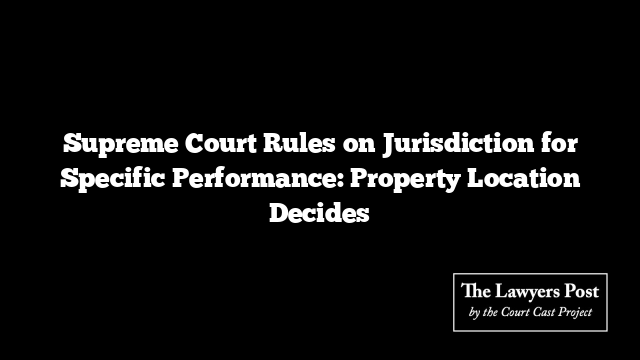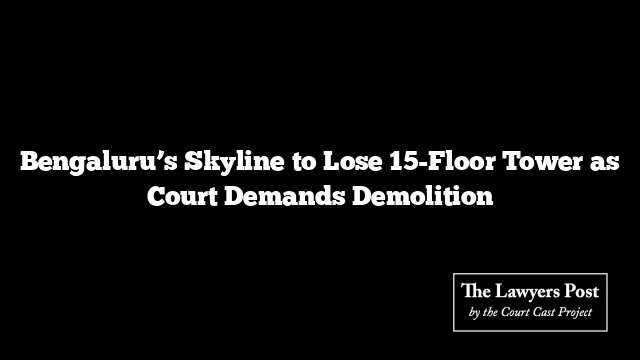In a significant ruling, the Supreme Court has clarified that suits for specific performance of an agreement to sell must be filed in the court that holds territorial jurisdiction over the property in question, as mandated by Section 16 of the Code of Civil Procedure, 1908.
The apex court dismissed arguments suggesting that such suits could be based on the personal obedience of the defendant, thereby allowing jurisdiction to be determined by the defendant’s residence or business location. The bench, comprising Justice JB Pardiwala and Justice R Mahadevan, held that the proviso to Section 16 CPC is inapplicable when the relief sought requires action outside the court’s territorial limits.
Background of the Case
The dispute revolved around a property in Gurugram, Haryana. The plaintiff filed the suit in the Delhi High Court, invoking the proviso to Section 16 CPC. A single judge initially deemed the suit maintainable. However, the division bench reversed this decision, directing the plaint to be presented in the competent court in Gurugram. The plaintiff then approached the Supreme Court.
The argument was that since no possession decree was sought, and the relief depended on the defendant’s personal compliance, the Delhi High Court had jurisdiction. The Supreme Court rejected this contention, emphasizing that execution of a sale deed inherently ties jurisdiction to the property’s location.
Key Observations
The court underlined that personal obedience of the defendant under the proviso to Section 16 applies only when no physical action outside the jurisdiction is necessary. Here, the sale deed’s registration had to occur in Gurugram, making the Delhi court’s jurisdiction untenable.
Citing precedents, including Babasaheb Dhondiba Kute v. Radhu Vithoba Barde and Harshad Chiman Lal Modi v. DLF Universal Ltd., the bench reiterated that property-related disputes must be adjudicated within the jurisdiction of the property’s location. The court observed:
“Actions involving immovable property should be addressed in courts where the property is situated. A court lacking territorial jurisdiction over the property cannot effectively adjudicate such disputes.”
Implications
The ruling prevents plaintiffs from bypassing jurisdictional rules to file suits in convenient forums. The court cautioned against potential misuse of legal provisions, such as initiating suits without possession claims only to amend them later.
The plaintiff was directed to file the suit in the appropriate Gurugram court, ensuring compliance with territorial jurisdiction principles. This decision reinforces a strict interpretation of Section 16 CPC, maintaining the integrity of property-related dispute adjudication.





